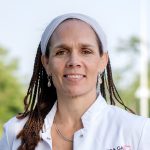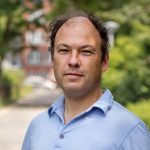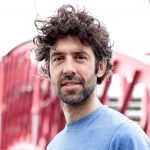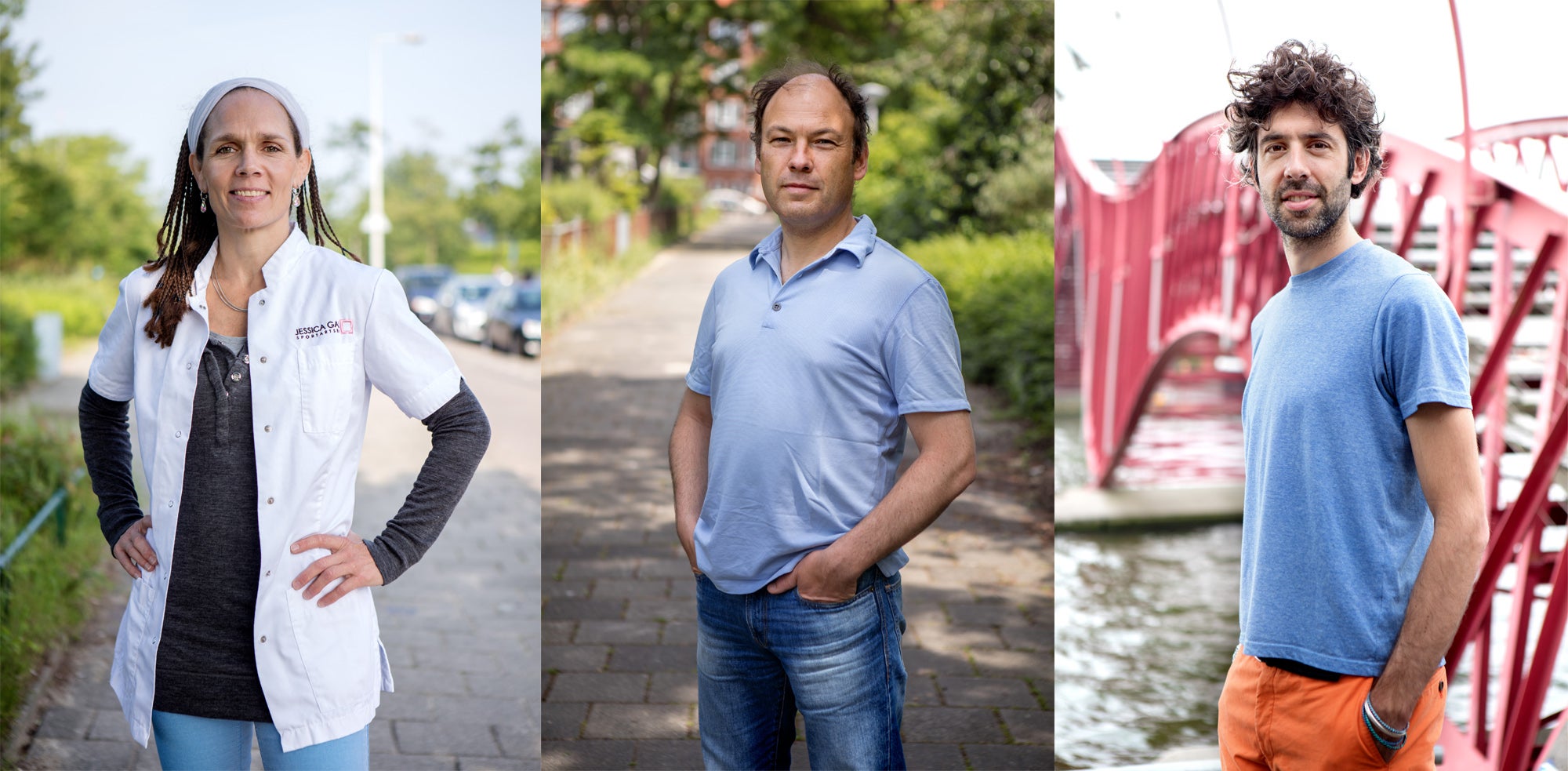There are now around 100,000 Vrije Universiteit alumni. What have they been doing since they finished their studies? In this monthly section, we feature three alumni who studied in the same programme. This time, we have a special sports edition: 3 studies, 3 jobs.
Sport and exercise physician and quadruple European judo champion

What kind of work do you do? ‘I’m a sport and exercise physician. I’ve had my own practice for a couple of years, and work with three other sport physicians and two assistants. Our patients include people with sports injuries, people needing a preventive check-up, or people with a limitation or illness who need a personal training programme.
Why did you choose to study medicine? ‘I’ve always done a lot of sport. I’ve been European judo champion four times and have taken part in the Olympic Games four times. As an athlete, I’ve always found the human body very interesting. Another factor was that with medicine, you know you’ll end up doing something good. After graduating, you are really “something”.’
What was your student life like? ‘While I was studying, I was also doing judo, so I was away a lot for training and competitions. When I came home, I often only had enough energy to study a bit before going to bed. I think because of that, I didn’t experience my studies as intensely as my classmates. It’s a shame in some ways, but that was balanced out by the successes and extraordinary journeys.’
What was the high point of your studies? ‘Once again, that involves judo: the 1996 European Championship. I went through a difficult couple of years in which I hadn’t any successes. I really wanted to qualify for the Olympic Games, but I could only do that if I won the European Championship. And I did it: after much stress and frustration, I finally got that medal. That was a euphoric moment.’
NOS news compiler and hockey player

You’re a political scientist, but you also work as a compiler for the sports news service at NOS. How did that come about? ‘I studied journalism at college first, so I was already interested in that. I went to work at the NOS in the “Abroad” and “The Hague” editorials, but two years ago a position opened up for a sports editor. That immediately caught my eye, because I’ve always been involved in sport, being an active hockey player.’
What was your student life like? ‘When I was studying political sciences, the Social Sciences Faculty was still in the Amsterdam Oud-Zuid area. I was really happy about that. We had lectures in beautiful buildings, and during our breaks we could walk through the Vondelpark.’
What was the high point of your studies? ‘My Erasmus exchange to Bilbao. I planned for six months, but it ended up turning into two years. One of the important reasons for staying there was the woman I met there, whom I later married.’
How did that go, graduating while in Bilbao? ‘It was incredibly circuitous. There was no email yet, so I faxed back and forth with my thesis supervisor. After a couple of months I had to change my topic. The topic I’d chosen initially, the transition from Franco’s dictatorship to democracy, turned out to still be such a sensitive subject that I couldn’t find any literature about it. Fortunately enough, I could graduate based on my studies into Spain’s accession to the EU instead.’
Teacher and former track cyclist

You were Dutch track cycling champion four times, and at the same time you studied Human Movement Sciences. How did you manage that? ‘Before I started on my Bachelors study, I quit cycling for a year so that I could completely focus on my studies. I joined the student rowing association Skøll, went to lots of parties and met my wife. After that year, not only had I experienced student life, I’d got a nice girl into the bargain. I decided to take up cycling once again. Luckily, that went well. I did quit cycling for my Master’s, though, because I really wanted to be more involved in my studies.’
What are some of your good memories? ‘For my graduation project, together with another classmate I researched the conditions under which a team experiences the least wind resistance in a team pursuit. This research took place outdoors on the cycling track, and we worked together with my old colleagues from track cycling. It was great to combine my sport with research.’
What are you doing now? ‘I’m back at the Vrije Universiteit again, as a teacher in the Faculty of Behaviour and Human Movement Sciences. I’ve also been working for a number of years at the Watt Cycling Centre, a sports centre with indoor cycling. I develop training programmes and I give courses. I also have my own business coaching groups in training on the track. I don’t cycle at the top level any more – I don’t have time for that. The nice thing about track training is that I also get to cycle for an hour.’






